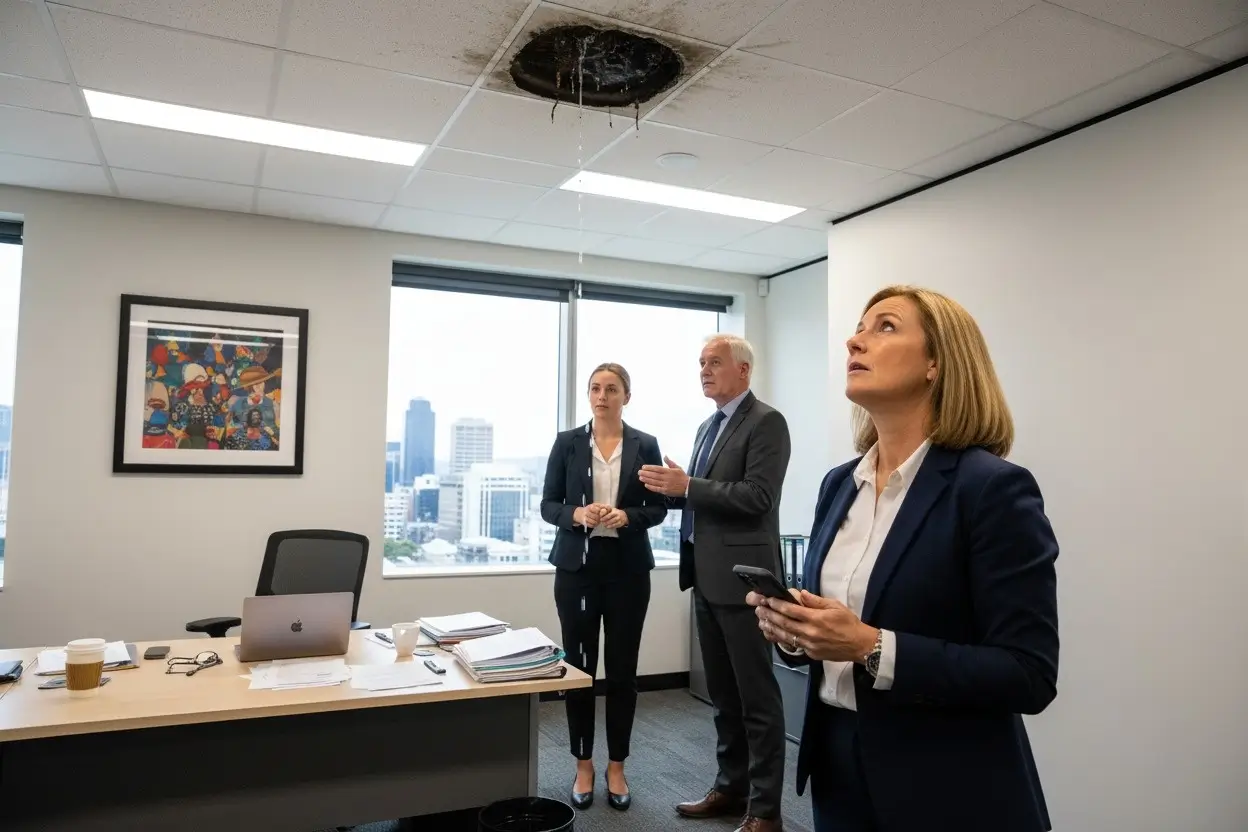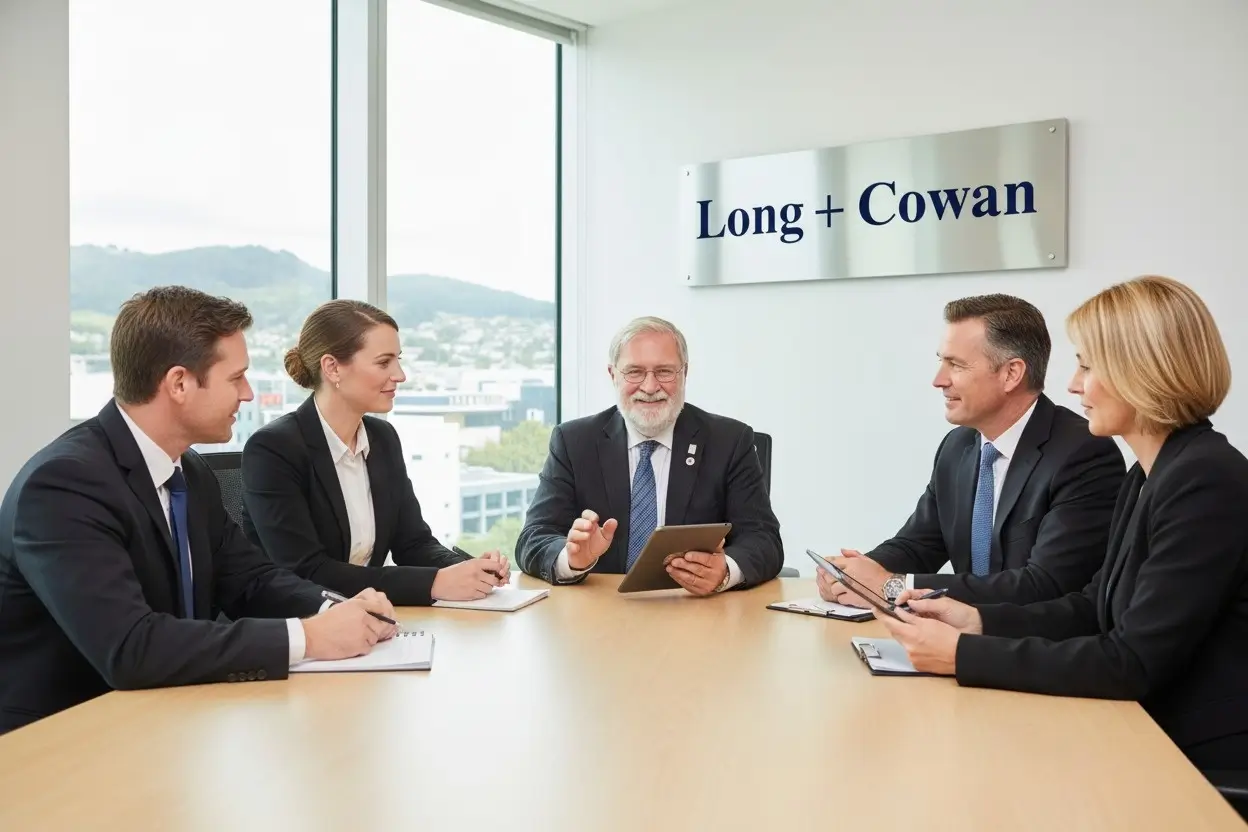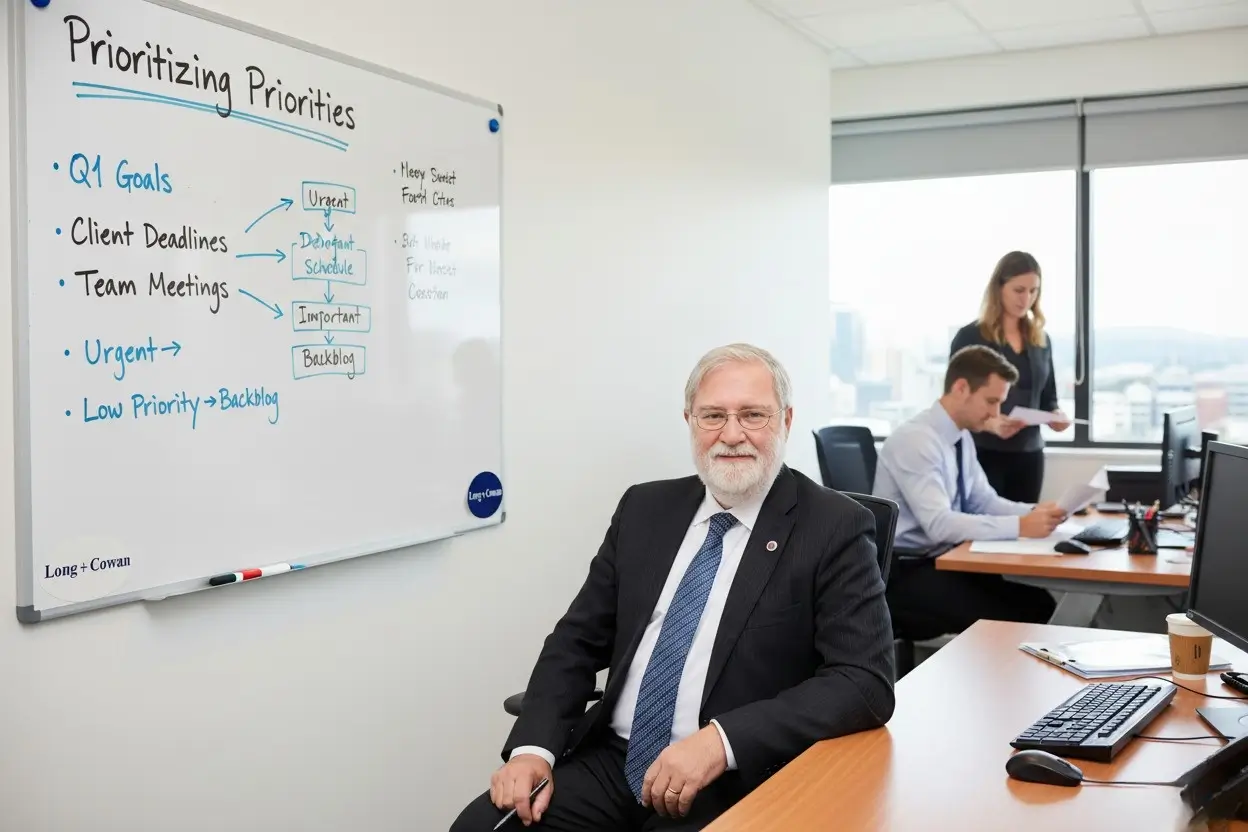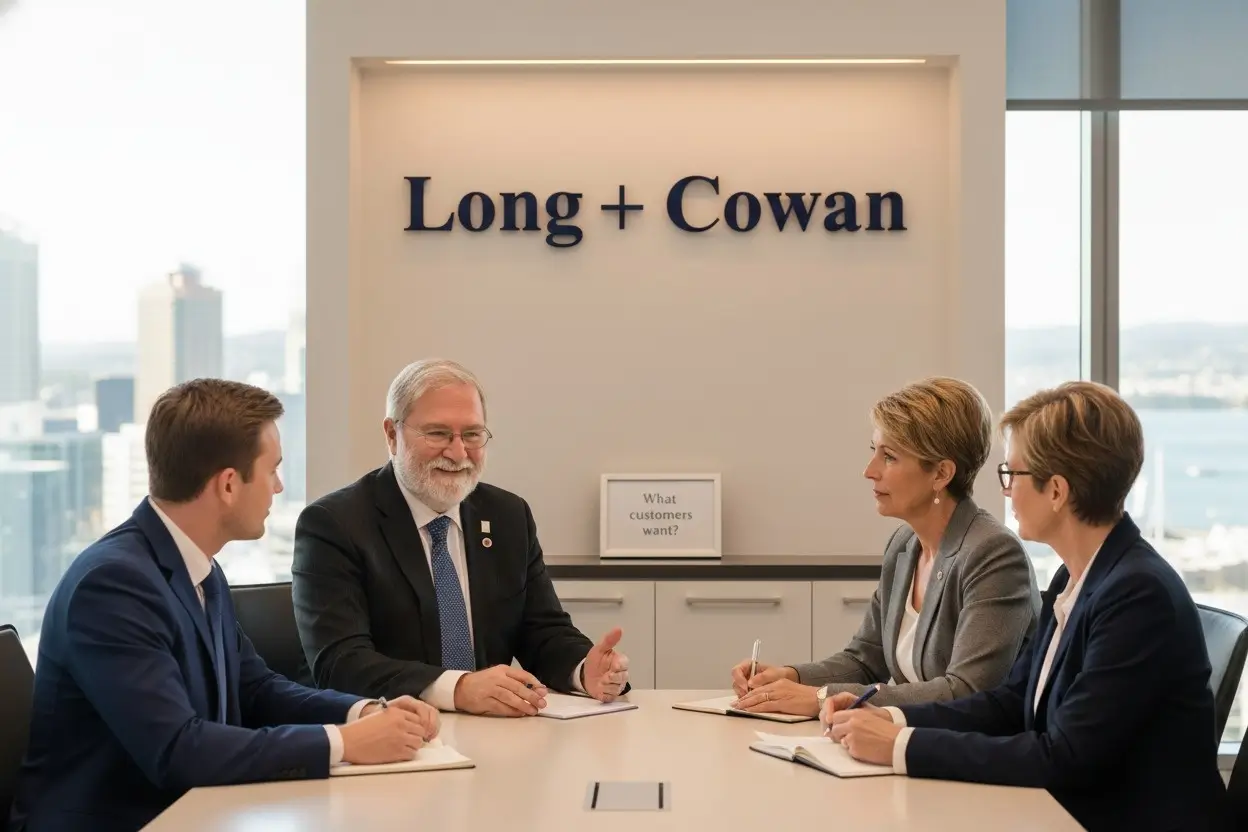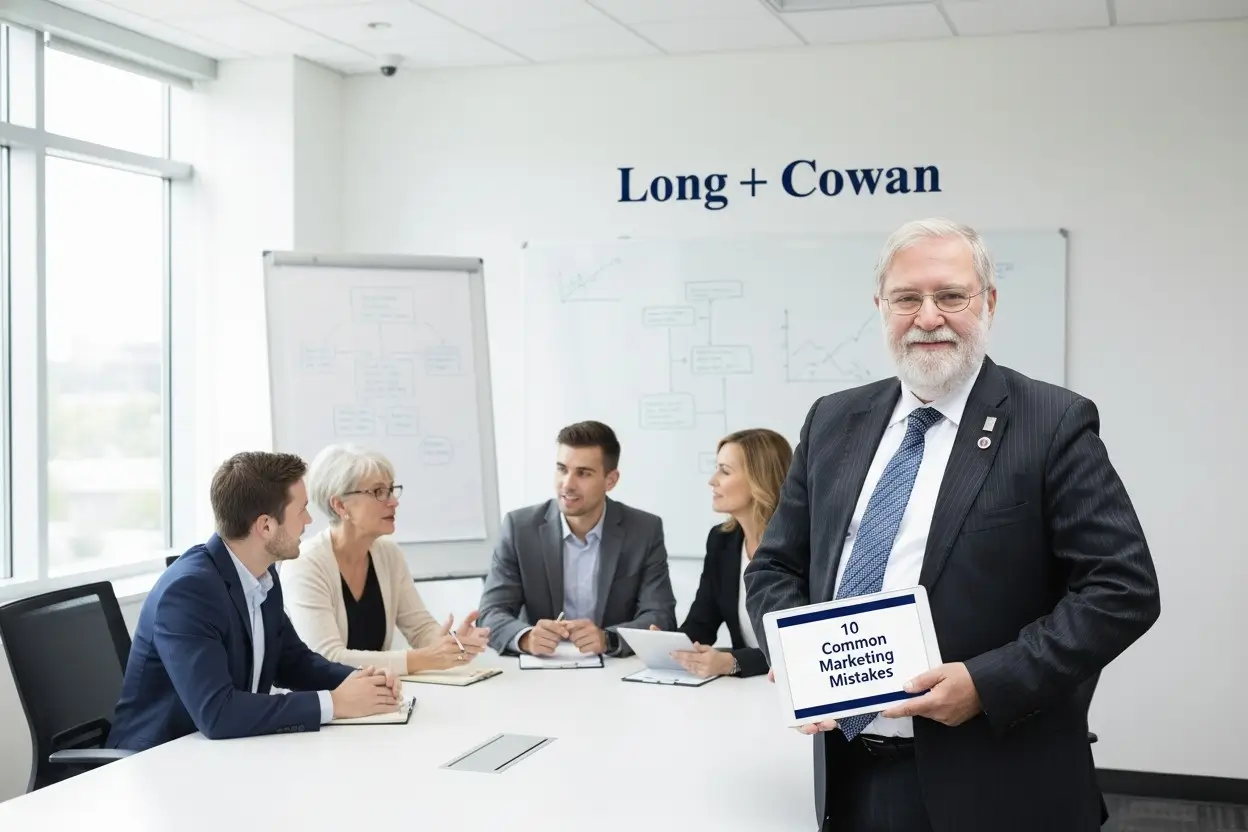Strong leadership management is more than delegation; it is about creating direction, trust, and measurable outcomes. At Long + Cowan, we work with Wellington business owners who balance leadership, financial oversight, and daily operations. Managing others begins with managing yourself.
A great manager sets expectations, provides feedback, and models consistency. Staff take cues from leadership behaviour, not instructions alone. When leaders demonstrate discipline, focus, and integrity, teams naturally mirror those qualities.
From Management to Leadership
Many professionals become managers through skill, not formal training. Yet leadership requires more than technical ability. It demands self-awareness, empathy, and clear communication. The best leaders combine authority with approachability.
Leadership transforms management into motivation. Instead of controlling people, strong leaders empower them. They set vision, define outcomes, and allow autonomy within structure. This shift builds commitment and accountability across the team.
The Power of Self-Management
Before leading others, a manager must master personal discipline. Self-management involves managing time, focus, and emotional response. When you handle stress constructively and meet deadlines consistently, you set a standard for everyone else.
Good leaders also reflect regularly on performance. Ask what went well, what needs adjustment, and how you can better support your team. Self-evaluation strengthens confidence and prevents reactive decision-making.
Building Accountability at Every Level
Accountability underpins effective leadership management. It starts with setting clear goals and defining ownership. Each staff member should understand their responsibilities, deliverables, and timelines. When accountability is transparent, excuses disappear.
Regular performance reviews reinforce accountability. Discuss outcomes against objectives, not personalities. Constructive feedback motivates rather than discourages. When employees know their work matters, they stay engaged.
Communicating with Clarity
Strong leaders communicate with purpose. Confusion erodes trust, while clarity builds alignment. Set clear priorities, explain decisions, and ensure everyone understands both short-term targets and long-term direction.
Communication is not only about talking but also about listening. Encourage staff to share ideas and voice challenges. This two-way exchange strengthens relationships and improves collective decision-making.
Delegating with Confidence
Delegation is an essential leadership skill that prevents burnout and fosters development. Many managers hesitate to delegate, fearing loss of control. Yet effective delegation increases efficiency and builds capability within the team.
Assign tasks based on individual strengths. Provide context, define expected outcomes, and offer support without interference. When people understand why their work matters, they take greater ownership and deliver better results.
Decision-Making with Purpose
Indecision drains energy and stalls progress. Effective leaders gather data, consult stakeholders, and then act decisively. Waiting for perfect information often leads to missed opportunities.
Develop a consistent framework for decision-making. Define what qualifies as a strategic decision and what can be handled operationally. This clarity empowers your team and accelerates workflow. Once a decision is made, communicate it clearly and move forward confidently.
Motivating Through Recognition
Motivation sustains performance. Recognising achievements, both large and small, shows that effort is noticed and valued. Public acknowledgment in team meetings or personal thanks during private discussions both build morale.
Recognition also encourages repeat behaviour. When employees see that good work leads to appreciation, engagement strengthens naturally. Simple, authentic recognition often outperforms complex incentive schemes.
Developing Emotional Intelligence
Emotional intelligence—understanding and managing your emotions and those of others—is crucial in leadership management. Managers who can read team dynamics, defuse tension, and show empathy gain loyalty and cooperation.
Observe reactions carefully, especially under pressure. Responding calmly to challenges sets the tone for professionalism. Emotionally intelligent leaders create workplaces where people feel safe to contribute ideas and admit mistakes without fear.
Encouraging Continuous Learning
Leadership development never ends. The best managers remain students of their profession. Attend workshops, read widely, and seek mentorship from peers and industry networks. Learning introduces new perspectives that refresh decision-making.
Encouraging your staff to develop alongside you strengthens the organisation. Shared growth fosters a culture of curiosity and innovation, reducing stagnation and improving adaptability.
Managing Upward and Sideways
Effective managers not only lead teams but also manage relationships with superiors and peers. Clear communication upward ensures senior management stays informed and supportive. Lateral collaboration builds cooperation across departments.
Managing upward means providing accurate information, not just positive updates. Senior leaders appreciate honesty and data-driven insight. This professionalism strengthens credibility and influence within the organisation.
Balancing Authority and Approachability
Leadership must inspire respect without creating distance. Being approachable allows staff to raise issues before they escalate, while maintaining authority ensures boundaries remain clear. Striking that balance requires awareness and consistency.
Encourage openness but remain decisive. Teams perform best when they feel supported yet guided. Confidence in leadership builds trust and stability through both growth and challenge.
Measuring Leadership Effectiveness
Leadership success is measurable. Track employee engagement, retention, and performance outcomes as indicators. If results stagnate, review whether communication, recognition, or structure require adjustment.
Seek feedback from your team anonymously to understand how your leadership style affects morale. Constructive insight helps refine your approach and align management methods with real-world impact.
Leading Through Change
Change is constant in business. Whether responding to regulation, technology, or market conditions, managers must adapt while maintaining focus. Strong leadership steadies teams through uncertainty.
Communicate openly about changes, explain the reasons behind decisions, and involve staff in problem-solving. Transparent leadership reduces anxiety and turns disruption into opportunity.
Applying Leadership Principles Across Wellington Businesses
Across Wellington Central, Kelburn, and Thorndon, local businesses face increasing pressure to perform efficiently while maintaining team cohesion. Applying structured leadership management practices—such as clear communication, delegation, and accountability—builds stronger operations and resilient teams.
Business leaders who combine empathy with structure inspire loyalty and deliver consistent performance. When leadership quality rises, productivity, client satisfaction, and profitability follow.
Partnering for Leadership Growth
Long + Cowan works with Wellington business owners and executives to strengthen financial and operational leadership. By linking management performance to measurable business outcomes, we help clients achieve greater confidence and control.
For tailored support in developing leadership structure and improving management systems, contact us for more info by filling in an enquiry form or e-mailing or calling us during office hours. Effective leadership drives sustainable success; let’s build it together.



























